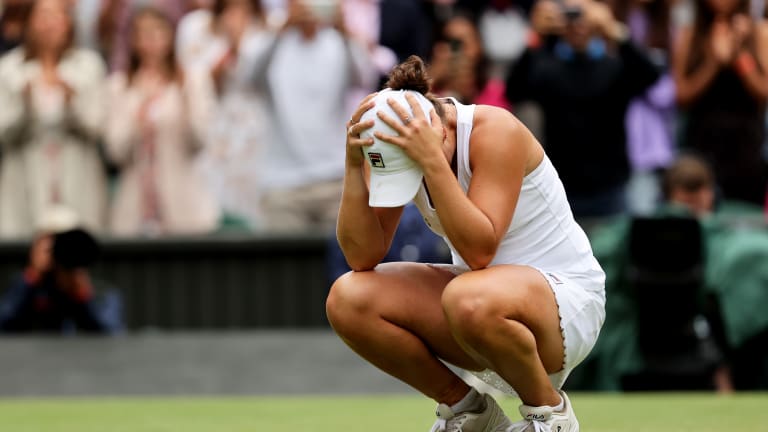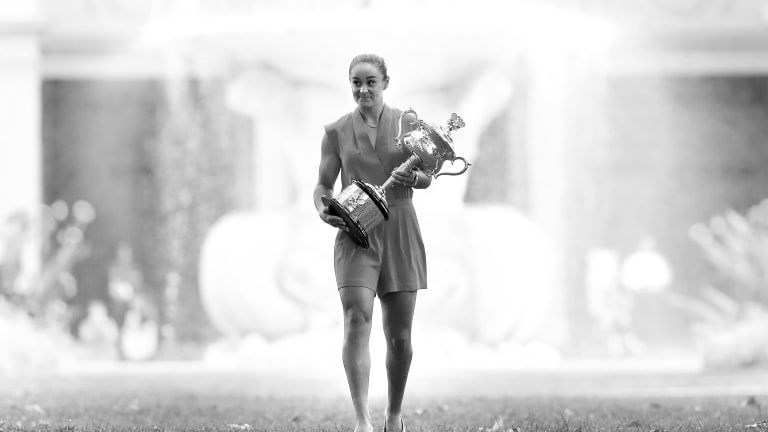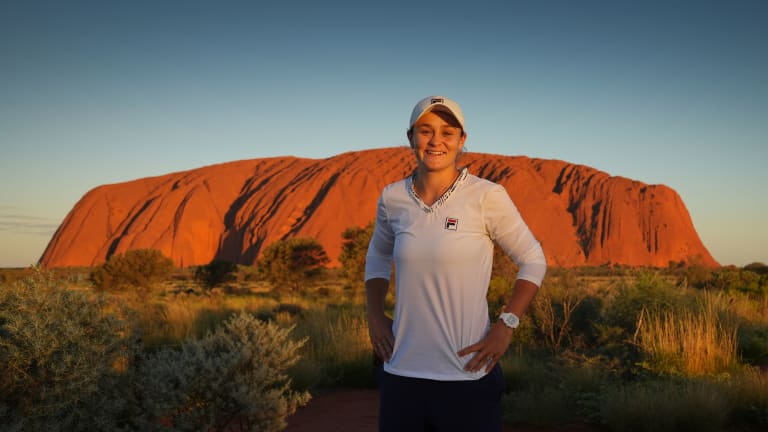Ash Barty Retires
Ash Barty's Australian Open title was a gift to a nation—and an accomplishment that finally, and truly, set her free
By Mar 24, 2022Ash Barty Retires
Going out on top: Even in retirement, Ashleigh Barty has always stayed true to herself
By Mar 23, 2022Ash Barty Retires
25 incredible things Ashleigh Barty achieved in her professional tennis career
By Mar 23, 2022Ash Barty Retires
"Gutted for tennis": Ashleigh Barty's peers react to her sudden retirement
By Mar 23, 2022Ash Barty Retires
BREAKING NEWS: World No. 1 Ash Barty announces retirement from tennis
By Mar 23, 2022Stat of the Day
Taylor Fritz records milestone 300th win of career, first American man born in 1990s to do so
By Apr 27, 2025Social
Alexander Bublik talks gaming, hypes coach’s FIFA skills in Madrid 🎮
By Apr 27, 2025Madrid, Spain
Alexander Zverev wins amid controversy in Madrid
By Apr 27, 2025Rome, Italy
Andy Roddick: Jannik Sinner “has to set the table in different ways” on clay
By Apr 27, 2025Madrid, Spain
Defending Madrid champ Andrey Rublev out to Alexander Bublik
By Apr 27, 2025Ash Barty's Australian Open title was a gift to a nation—and an accomplishment that finally, and truly, set her free
The Aussie’s decision to walk away from tennis at the peak of her powers is the de facto repudiation of a culture that, for all its putative glamor and riches, she never found captivating.
Published Mar 24, 2022
Advertising
Advertising

Everything changed for Barty once she won Wimbledon.
© Getty Images
Advertising

Barty satisfied a nation's desire for a homegrown Australian Open champion—and at the same time fulfilled all of her remaining tennis wishes.
© Getty Images
Advertising

After winning the Australian Open, Barty visited Uluru, one of the most important indigenous sites in Australia.
© TENNIS AUSTRALIA
Advertising

Download the Tennis.com app on your IOS or Android device today!